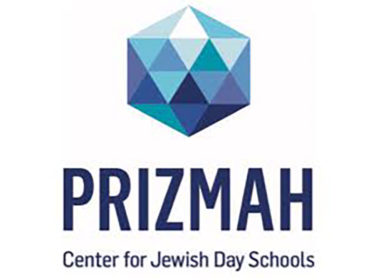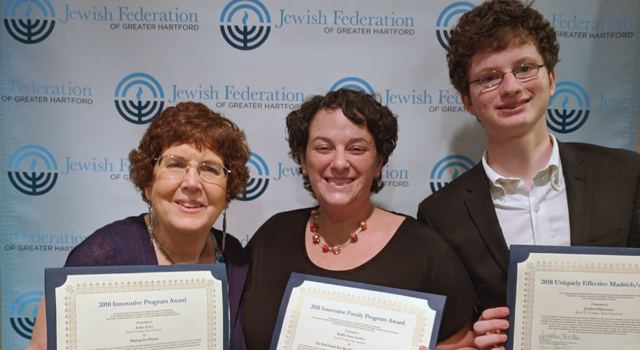
By Rabbi Tzvi Hersh Weinreb
I recently came across a passage in a book by Rabbi Yitzchak Yaakov Reines (1839-1915), the head of a very innovative yeshiva in Lida, Lithuania, and one of the founders of the Mizrachi Religious Zionist movement.
A prolific writer, in his book Nod Shel Demaot (“A Flask of Tears”), Rav Reines writes about the important role that mothers play in the development of their sons and daughters. He claims that it is not only the father’s teaching that motivates the budding Jewish leader. Rather, it is the mother’s feminine intuition and maternal compassion that are, at the very least, equally formative.
The sources of his thesis include a verse from this week’s Torah portion, Yitro (Exodus 18:1-20:23), in which we read that the Lord called to Moses from the mountain and said, “Thus shall you say to the house of Jacob and declare to the children of Israel…you shall be to Me a kingdom of priests and a holy nation…” (ibid 19:3-6).
The Midrash explains that “the house of Jacob” refers to women and “the children of Israel” to men. Both men and women must be involved if we are to become “a kingdom of priests and a holy nation.” “Why the women?” asks the Midrash, and answers, “Because they are the ones who can inspire their children to walk in the ways of Torah.”
Rav Reines also refers to the words in the first chapter of Proverbs, in which King Solomon says: “My son, heed the discipline (mussar) of your father, and do not forsake the instruction (Torah) of your mother” (Proverbs 1:8). From this verse, it seems that the mother’s message may be even more important for the child’s guidance than that of his father. After all, father merely admonishes the child with words of “discipline,” whereas mother imparts nothing less than the “instruction” of the Torah itself.
Finally, Rav Reines offer a biographical analysis of a great Talmudic sage, Rabbi Yehoshua ben Chananya. Of Rabbi Yehoshua ben Chananya, we learn, “Ashrei yoladeto, happy is she who gave birth to him.” Of all the outstanding disciples, only Rabbi Yehoshua’s mother is brought into the picture. Why?
Rav Reines responds by relating an important story recorded in Bereshit Rabba 64:10. It tells of a time, not long after the destruction of the Second Temple, when the Roman rulers decided to allow the Jewish people to rebuild the Temple. Preliminary preparations were already under way when the Kutim, usually identified with the Samaritan sect, confounded their plans. They maligned the Jews to the Romans and accused them of disloyalty. Permission to rebuild was revoked.
Having come so close to realizing this impossible dream, the Jews gathered in the valley of Beit Rimon with violent rebellion in their hearts. They clamored to march forth and rebuild the Temple in defiance of the Roman’s decree. However, the more responsible leaders knew that such a provocation would meet with disastrous consequences. They sought for a respected figure, sufficiently wise and sufficiently persuasive, to calm the tempers of the masses and quell the mutiny. They chose Rabbi Yehoshua ben Chananya for the task.
Rabbi Yehoshua used a fable as the basis of his argument: A lion had just devoured its prey, but a bone of his victim was stuck in his throat. The lion offered a reward to anyone who would volunteer to insert his hand into his mouth to remove the bone. The stork volunteered, and thrust its long neck into the lion’s mouth and extracted the bone. When the stork demanded his reward, the lion retorted, “Your reward is that you can forevermore boast that you had thrust your head into a lion’s mouth and lived to tell the tale. Your survival is sufficient reward.” So, too, argued Rabbi Yehoshua, our survival is our reward. We must surrender the hope of rebuilding our Temple in the interests of our national continuity.
Rav Reines argues that this combination of cleverness and insight into the minds of men was the result of his mother’s upbringing. Rabbi Yehoshua was chosen for this vital role in Jewish history because the other leaders knew of his talents, and perhaps even knew that their source was to be traced back to his mother, of whom Rabban Yochanan ben Zakkai had exclaimed, “Happy is she who gave birth to him.”
Rav Reines’ insight is important for us to remember. Our tradition urges us to embrace the role of the mother not just in the child’s physical and emotional development, but in his or her spiritual and religious growth as well.
We would do well to remember that Rav Reines is simply expanding upon God’s own edict to Moses at the very inception of our history: “Speak to the house of Jacob! Speak to the women as well as to the men.”
Mothers, at least as much as fathers, are essential if we are to create a “kingdom of priests and a holy nation.”







 Southern New England Jewish Ledger
Southern New England Jewish Ledger














